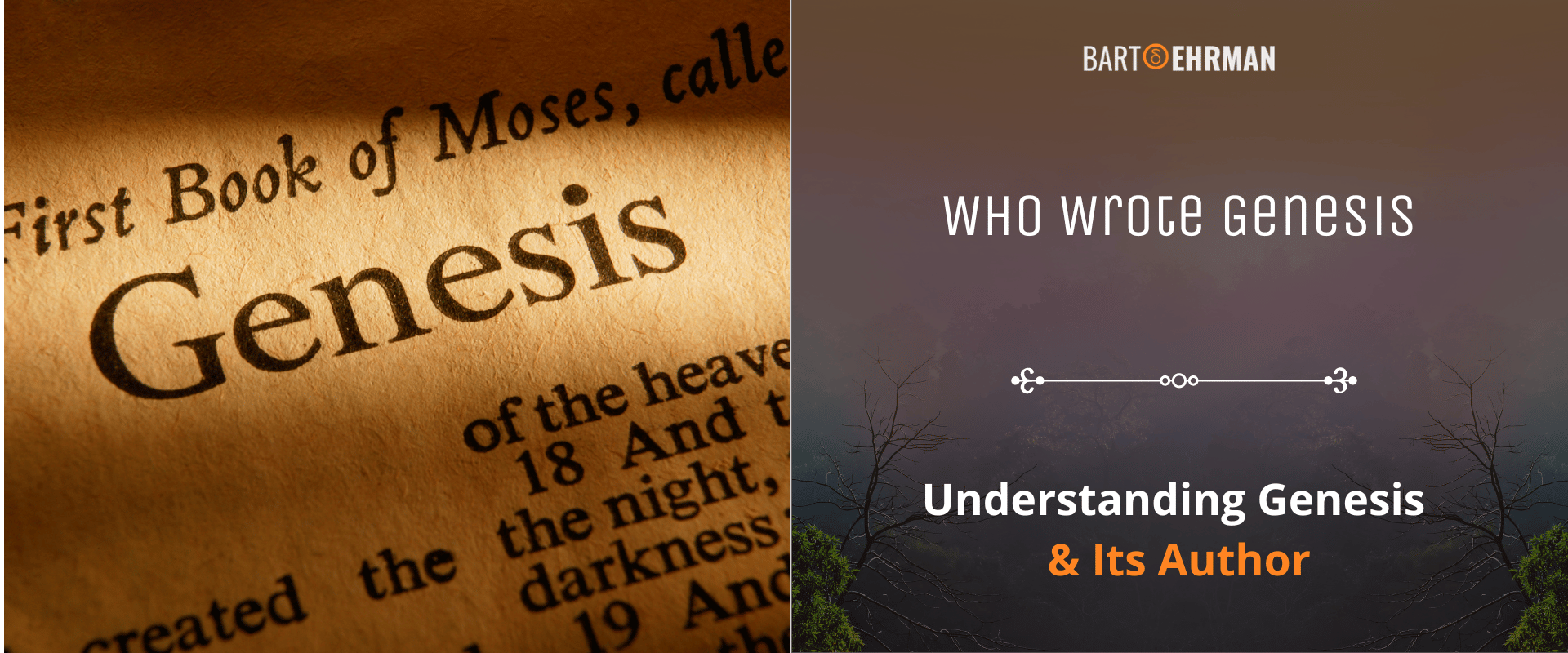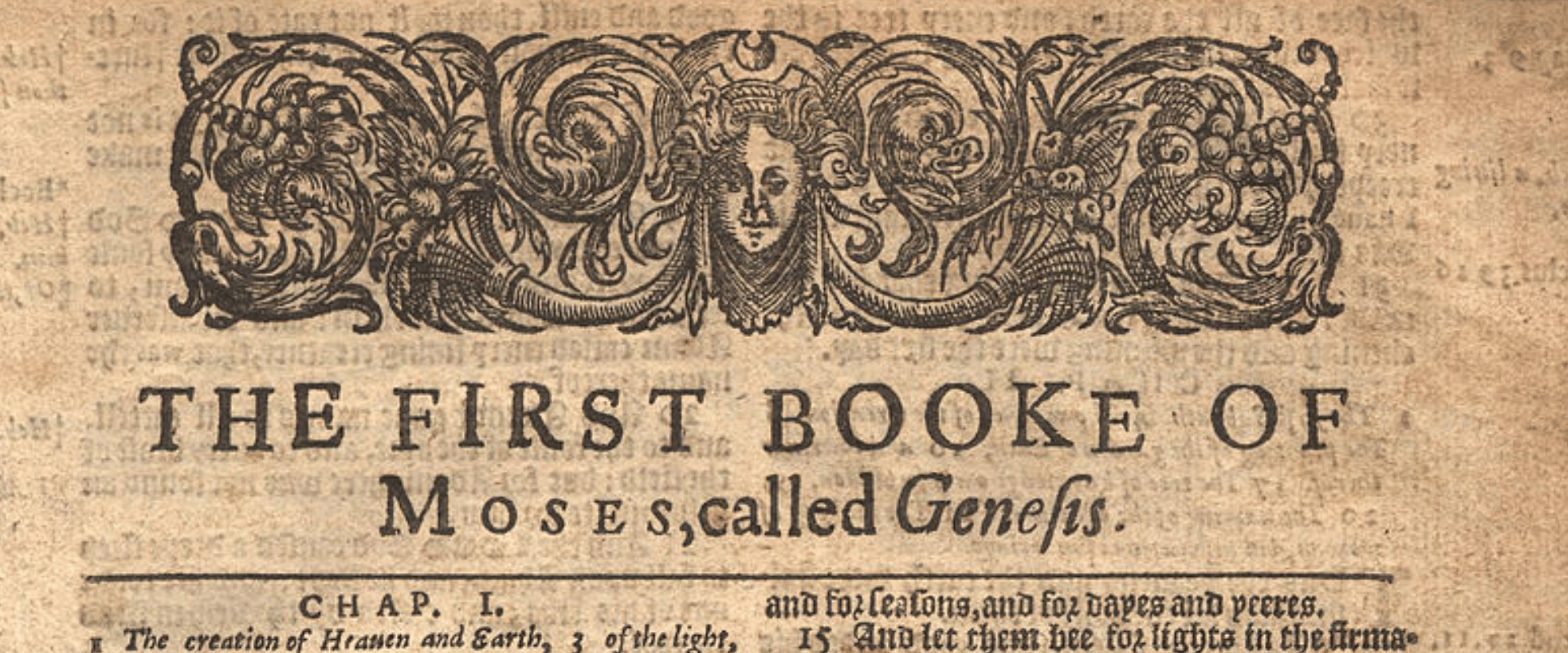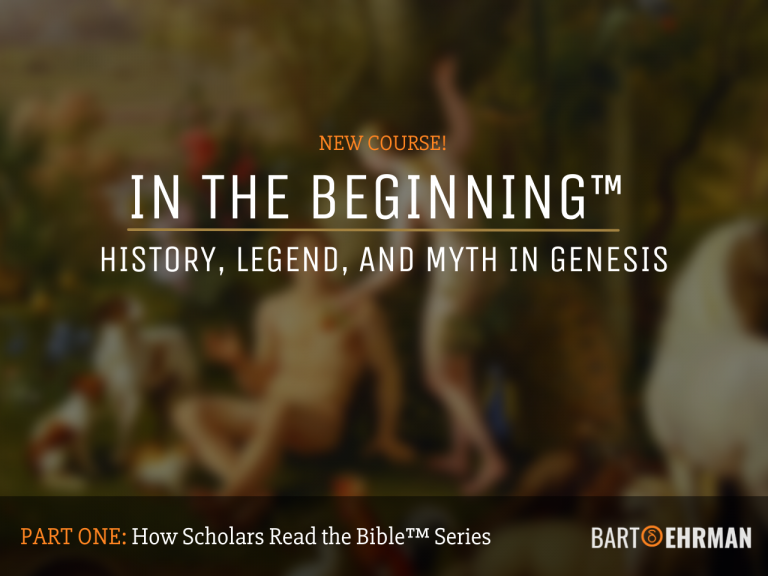Who Wrote Genesis? Unlocking the Secrets

Written by Joshua Schachterle, Ph.D
Author | Professor | Scholar
Author | Professor | BE Contributor
Verified! See our editorial guidelines
Verified! See our guidelines
Date written: September 6th, 2023
Disclaimer: The views and opinions expressed in this article belong to the author and do not necessarily match my own. - Dr. Bart D. Ehrman
Do we really know who wrote Genesis? Scholars and theologians have long contemplated this question.
The first book of the Hebrew Bible is filled with stories of Adam and Eve, Noah, Abraham, Isaac, and Jacob, but do we know who wrote these tales? The composition of Genesis is shrouded in mystery, and its significance cannot be overstated.
So, let’s dig deeper into the origins of Genesis to unlock the secrets of this ancient text.

Moses & Genesis
The book of Genesis is the first book of the Pentateuch, the first five books of the Hebrew Bible. This includes Genesis, Exodus, Leviticus, Numbers, and Deuteronomy. Tradition says that Moses wrote these five books. Can we prove that? Actually, the scholarly consensus is that Moses didn’t write any of these books.
Scholar Charles Aaron Jr. gives more information on that in this book.
Moses may not even have existed, although we’ll leave that for another article.
Instead, most scholars agree that three separate authors were involved in creating the Book of Genesis. It may make more sense to say that three distinct literary traditions are involved in the writing of Genesis.
This is why, for example, many stories in Genesis are told more than once and differently.
Places of Composition
Before discussing the sources of Genesis, we must first understand that Israel was divided into two kingdoms in the 10th century BCE: the northern kingdom of Israel and the southern kingdom of Judah. The sources of Genesis we will examine are related to one of these kingdoms.
Judah was the kingdom of King David and his son Solomon. Thus, sources from that region orient much of what they write, in Genesis and elsewhere, toward the eventual reign of David. Judah was conquered by Babylonia (in modern-day Iraq) in 597 BCE. Thus began a 70-year exile in Babylon for the Judahites. They were eventually allowed to return and rebuild, however.
Israel had different traditions and a foundational king named Jeroboam. Unlike Judah, Israel was conquered by the Assyrians and never rebuilt. Eventually, Judah took over both kingdoms, and the whole land was renamed Israel.
Now that we have a grasp on the impact of those two kingdoms on Genesis traditions, let us examine our three sources.
Yahwist (J Source)
Scholars call the first source the Yahwist source because it refers to God as “Yahweh.” Scholars usually abbreviate this source as “J” because the German transliteration of Yahweh begins with a J. I’ll use that abbreviation for the rest of this article. J was written in Judah and contributed the lion’s share of material in Genesis.
One of the ways scholars distinguish different sources in Genesis is that the various traditions called God by different names. Other names are changed between sources as well. For example, in the J source in Exodus, the Israelites conquered a people called the Canaanites. In another source we’ll discuss below, those people are called Amorites. J refers to the mountain where Moses receives the law as Sinai, while another source calls it Horeb.
According to Joel Baden, J was written in the land of Judah and J contributes the lion’s share of material in Genesis.
Yawist Source Dates
While we don’t know the exact dates when J was written, scholars generally put its creation between the 10th and 9th centuries BCE. By the way, this puts it centuries later than Moses was supposed to have lived.
We know that J wrote most of Genesis, including 2–16, 18–22, 24–34, 38, and 49. Remember when I said Genesis told the same stories more than once? This starts from the very beginning of the book.
For example, Genesis 1 gives an account of God’s creation of the world and everything in it. This happens in six days. But J didn’t write Genesis 1. J’s version of the creation begins in Genesis 2 and differs from Genesis 1.
For instance, Genesis 1 says God created humans but doesn’t say how. Adam and Eve appear at God’s insistence. But in Genesis 2, God forms a man (Hebrew: Adam) from the dust of the earth and breathes life into him. Later, he takes a rib from Adam and forms Eve.
Why would one book give two such different accounts?
Because they represent two different traditions which were later put together in Genesis.
J writes the story of Adam and Eve’s temptation by the serpent in the garden and their subsequent expulsion. He also wrote the story of Noah, the Tower of Babel, and Abraham. These are, of course, foundational myths for Judaism, Christianity, and Islam.
So, since J contributes the most material, what are the other sources, and what did they contribute to Genesis?
Elohist (E Source)
Scholars call a second source for Genesis Elohist, abbreviated as “E” since this source calls God “Elohim.” E contributes much less to Genesis than J, although E contributes far more to the book of Exodus. E was written in the 9th century BCE in the northern kingdom of Israel, emphasizing northern place names and heroes like Joshua.
We first see E’s handiwork in Genesis 20, which is part of the continuing story of Abraham and his wife, Sarah. As I said before, E doesn’t contribute nearly as much material to the Pentateuch until the book of Exodus.

Priestly (P Source)
The third source for Genesis is the Priestly source or “P.” It’s called Priestly because its main concerns are rules for priests involving ceremonies and cultic regulations. It was probably written sometime between the 6th and 5th centuries BCE. The earliest layer of this tradition was likely written in Judah.
Most of this source was written during the Babylonian exile, focusing on establishing traditions and genealogies to remind the exiles of their identity and origins.
P contributes to the first creation story in Genesis 1. P also writes Adam’s genealogy in Genesis 5 and the genealogy of Shem in Genesis 11, which leads up to Abraham. In addition, P contributes Abraham’s covenant with God and a few other stories about Abraham, Isaac, and Jacob.
Closing Thoughts About Who Wrote Genesis
What is the main message of Genesis? There are so many messages in this long book that choosing one is overwhelming. Principally, Genesis shows the power and sovereignty of the God of Israel. It is also the founding story of the Jewish people, making it hugely important for Christians and Muslims as well.
When we ask who wrote Genesis, there are two possible objections to finding an answer. The first is that traditions going back centuries attribute the book to Moses. Some may feel challenged by the notion that this faith tradition cannot be historically verified.
The other is an age-old question: so what? When was Genesis written and why does it matter? Why does it matter who wrote the Book of Genesis? As a historian, I can’t address the faith question. People of faith have to wrestle with that on their own, just as Jacob does in Genesis 32.
Why We Should Care?
However, I’d like to address the “so what?” question, as it applies to a lot of historical work on the Bible.
The Bible is one of the most influential books of all time. If you believe in the Bible as a source of spiritual truth, its significance is immense. However, even if you don’t believe in this, you can’t ignore the influence the Bible has had on the world for centuries.
For both religious and non-religious people, it’s essential to understand some things about the Bible, including Genesis. By understanding the historical context in which it was written, we can appreciate the authors’ intentions and make valid interpretations for our own context.
Related -> Who Wrote the Bible?

